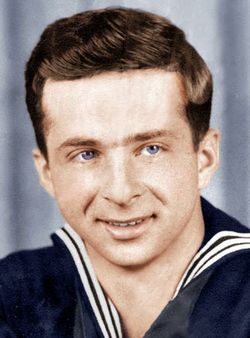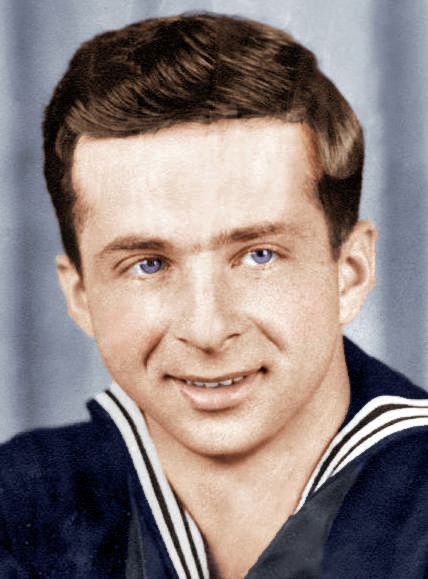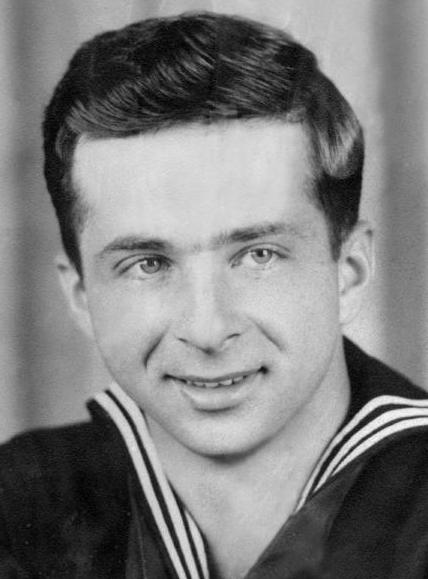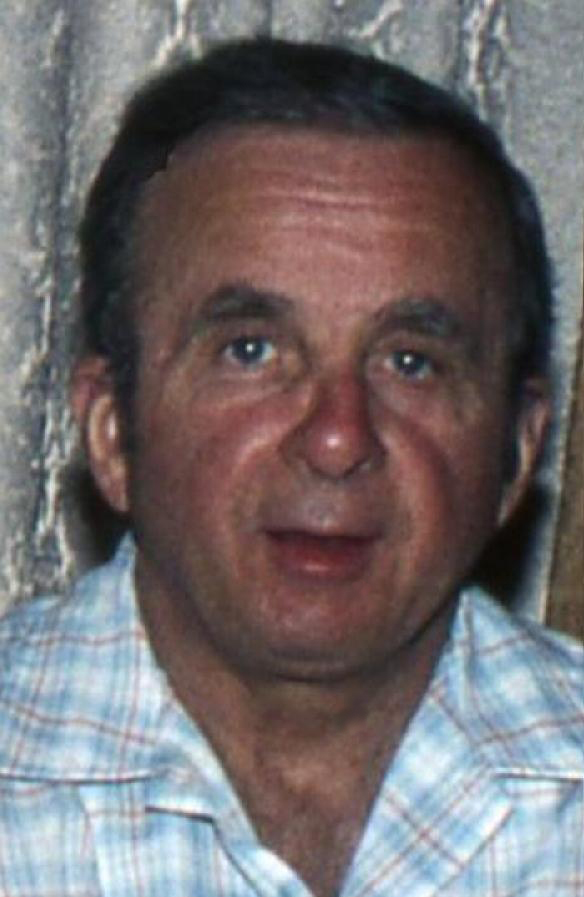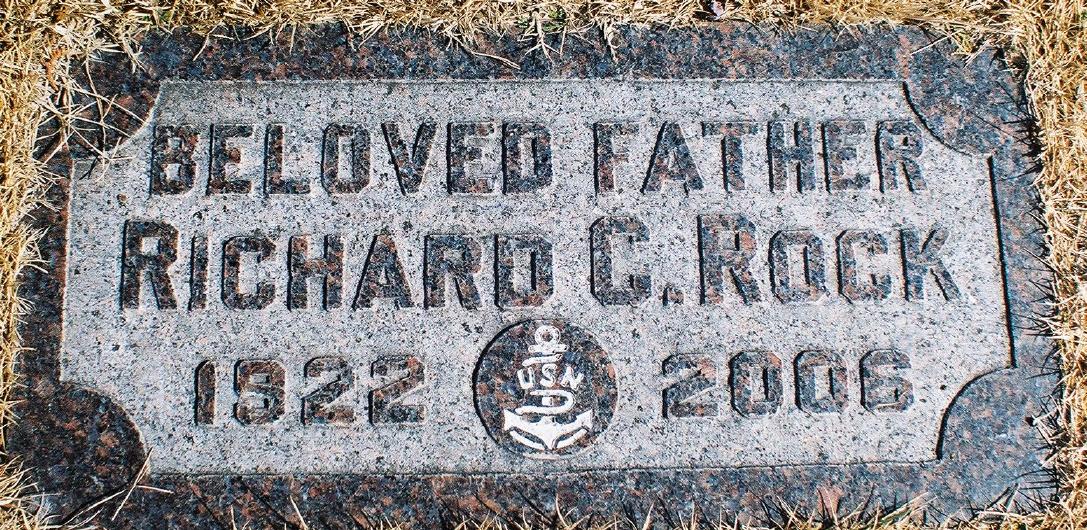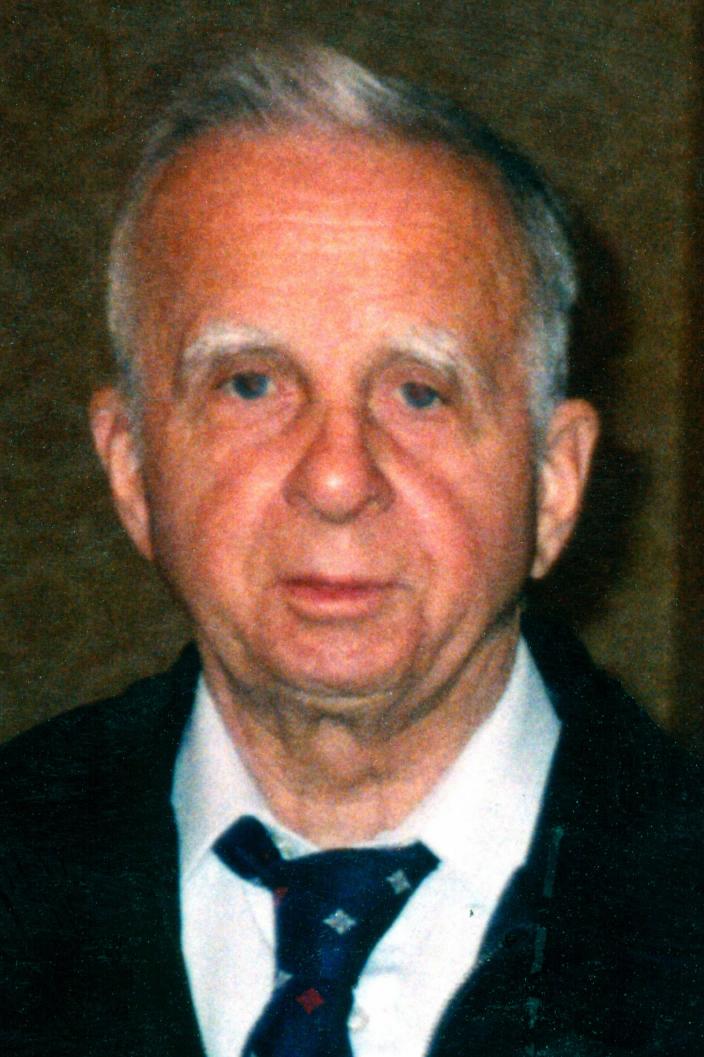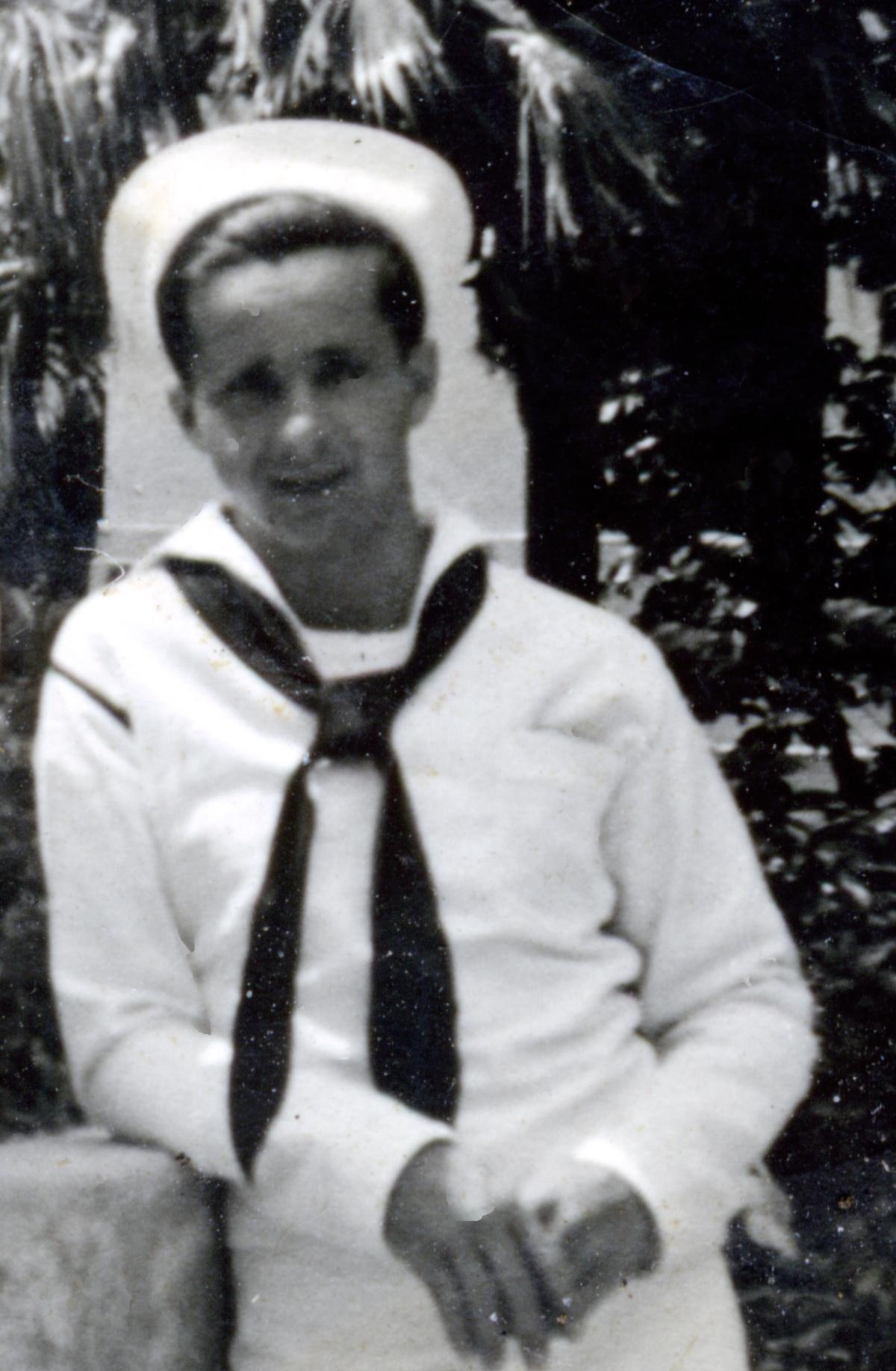He was born in 1922, son of John A. Rock, Jr. and Mary Esther Chenoweth, in the Armourdale district of Kansas City, Kansas. With the exception of four years in the Navy and several months after the Flood of 1951, he lived in Armourdale his entire life.
His father died when he was three years old, and he grew up in the Great Depression, getting his first job job at 13, working at a filling station. When he received his first paycheck, he used his earnings to pay off one of his mother's bills. As a teenager, and for the rest of his life, he always put the needs of others ahead of his own. He had a strong work ethic, reflecting the influence of his grandfather, Frank Chenoweth.
His biggest interest and talent was in auto mechanics, which remained a great interest most of his life. He helped others with their car problems, and shared his expertise freely with any who asked.
Once he graduated high school, he took a job as a truck driver, and did so until he answered his country's call to war. He served in the United States Navy from 1942 through 1946, serving most of his time as a Yeoman on the U.S.S. Flint. He said that he joined the Navy because he had flat feet and was afraid that if he was drafted into the Army, he wouldn't be allowed to serve.
"Allowed to serve." For him, the issue was duty, and the desire to give service to his country.
Returning from the War, he worked as a truck driver for about a year, then went to work for the Kansas City Terminal Railway, spending most of the next 37 years working in and around Kansas City's Union Station, first in the mail and baggage department, and then in the freight department, retiring as chief freight clerk in 1984. Even in retirement, he remained a railroad man for life.
He loved the railroad, and he lived and breathed auto mechanics, but the activity at which he always did his best for the whole of his life was as a father.
He married Haily Bird in 1951 and adopted her infant daughter from a previous marriage, raising her as his own along with the two sons they had in the following years.
Haily died from injuries received in an automobile accident in 1961 caused by a drunk driver who left the scene and was never caught. Richard suffered injuries in the same accident, and was left with three children to raise. He made whatever sacrifices he had to make to keep his family together.
He remarried in 1966 to Nancy Nadine (Davis) Moberg, and they remained together until her death in 1995. When she became ill more than a year before that, he nursed her through that time, taking very seriously that part of the marriage vow that said "in sickness and in health". Her health became so poor toward the end that he would not have been blamed for placing her in a home; he never considered that an option.
He had a major heart attack in 1994, but fought back from it and maintained an active life until his final years. He died in 2006.
We miss you, Dad, and we love you.
He was born in 1922, son of John A. Rock, Jr. and Mary Esther Chenoweth, in the Armourdale district of Kansas City, Kansas. With the exception of four years in the Navy and several months after the Flood of 1951, he lived in Armourdale his entire life.
His father died when he was three years old, and he grew up in the Great Depression, getting his first job job at 13, working at a filling station. When he received his first paycheck, he used his earnings to pay off one of his mother's bills. As a teenager, and for the rest of his life, he always put the needs of others ahead of his own. He had a strong work ethic, reflecting the influence of his grandfather, Frank Chenoweth.
His biggest interest and talent was in auto mechanics, which remained a great interest most of his life. He helped others with their car problems, and shared his expertise freely with any who asked.
Once he graduated high school, he took a job as a truck driver, and did so until he answered his country's call to war. He served in the United States Navy from 1942 through 1946, serving most of his time as a Yeoman on the U.S.S. Flint. He said that he joined the Navy because he had flat feet and was afraid that if he was drafted into the Army, he wouldn't be allowed to serve.
"Allowed to serve." For him, the issue was duty, and the desire to give service to his country.
Returning from the War, he worked as a truck driver for about a year, then went to work for the Kansas City Terminal Railway, spending most of the next 37 years working in and around Kansas City's Union Station, first in the mail and baggage department, and then in the freight department, retiring as chief freight clerk in 1984. Even in retirement, he remained a railroad man for life.
He loved the railroad, and he lived and breathed auto mechanics, but the activity at which he always did his best for the whole of his life was as a father.
He married Haily Bird in 1951 and adopted her infant daughter from a previous marriage, raising her as his own along with the two sons they had in the following years.
Haily died from injuries received in an automobile accident in 1961 caused by a drunk driver who left the scene and was never caught. Richard suffered injuries in the same accident, and was left with three children to raise. He made whatever sacrifices he had to make to keep his family together.
He remarried in 1966 to Nancy Nadine (Davis) Moberg, and they remained together until her death in 1995. When she became ill more than a year before that, he nursed her through that time, taking very seriously that part of the marriage vow that said "in sickness and in health". Her health became so poor toward the end that he would not have been blamed for placing her in a home; he never considered that an option.
He had a major heart attack in 1994, but fought back from it and maintained an active life until his final years. He died in 2006.
We miss you, Dad, and we love you.
Inscription
"Beloved Father"
